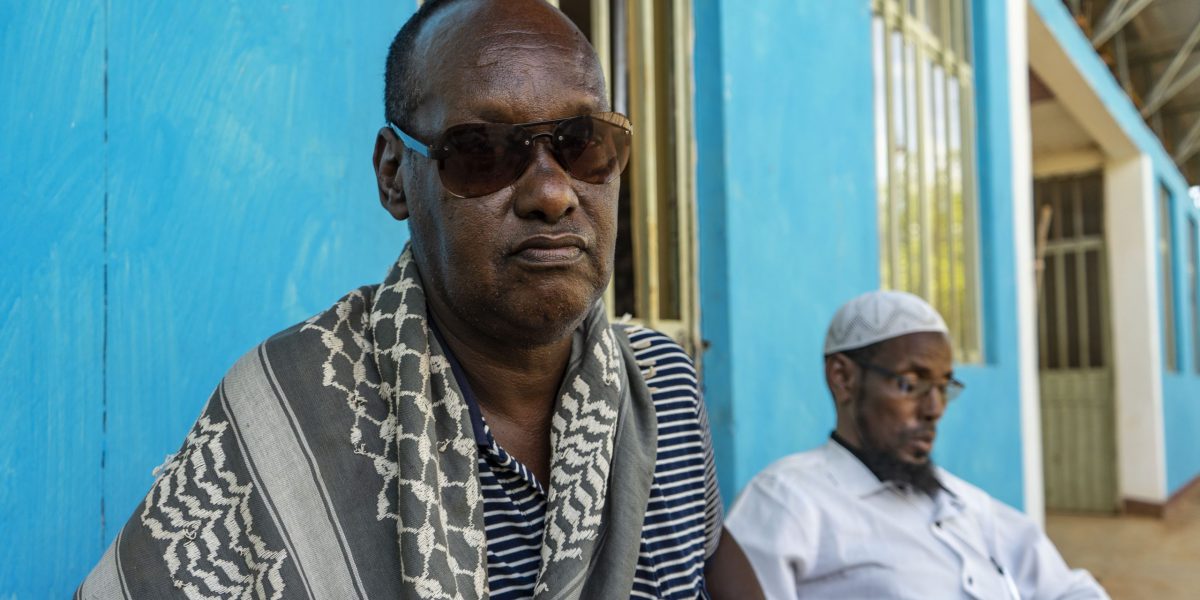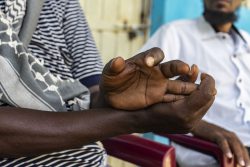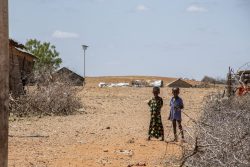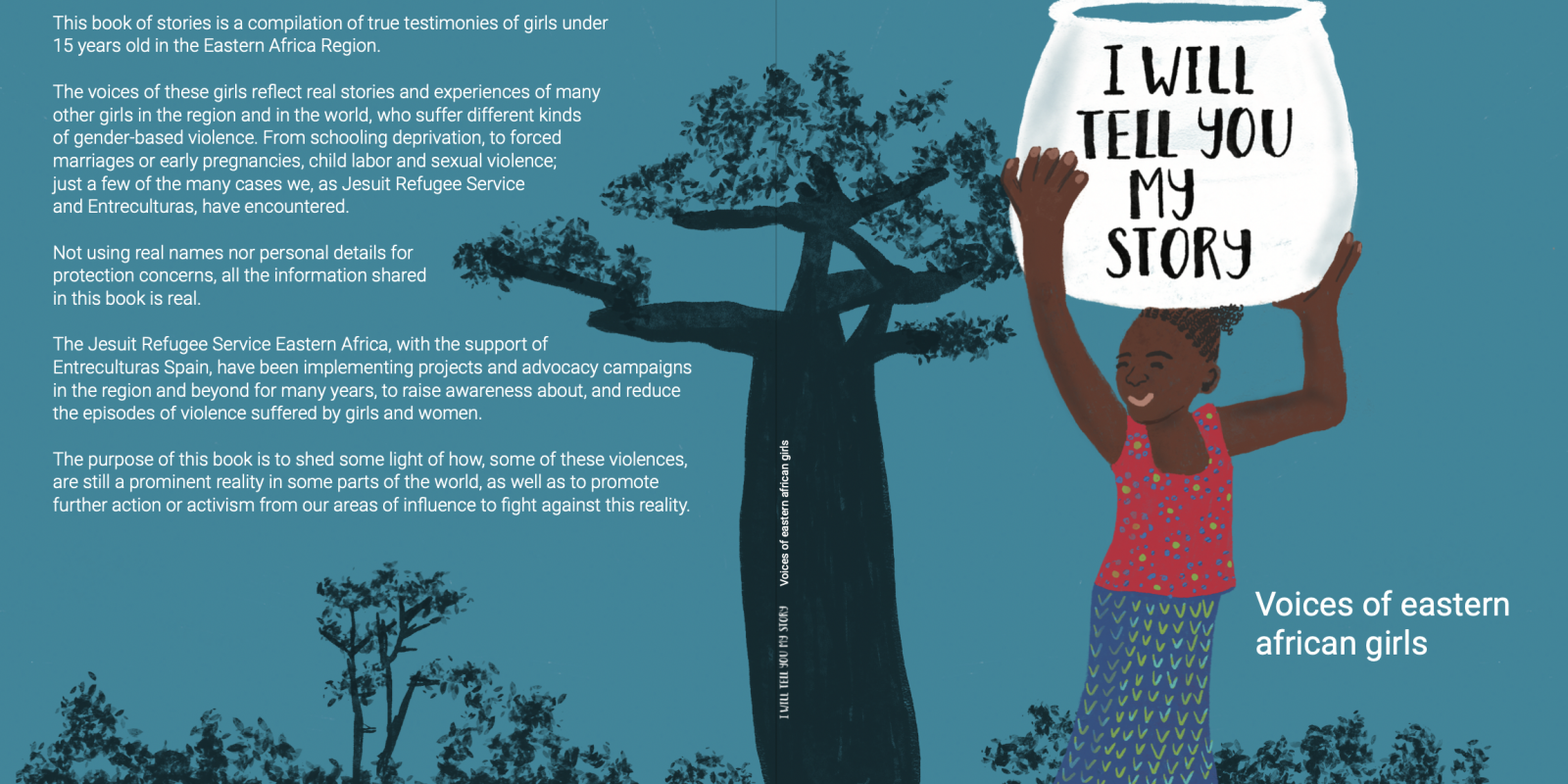A Clan Leader’s story about reconciliation
28 July 2022|Paula C Aguirregabiria

Abdikadir Ahmed Abdi, Ugaas (leader position, inherited by family from father to son) of the Marihaan clan, in one of the most important people in Dollo Ado and Malkadida Refugee Camps. He, as all other Ugaas together with host community leaders, are part of the Reconciliation program JRS is conducting in Dollo Ado.
Abid is a 55 years old Somali who fled Somalia more than five years ago. The reasons why they fled where more than one: the frequent droughts in Somalia, making pastoral life and survival very challenging, was one of them, but the threat of Al-Shabaab was what triggered their decision to flee. He explains us that Al-Shabaab would not allow women to access education, forced them to cover their faces and the community as a whole is afraid of their rule of fear and terror.
Him himself, because of being a clan leader (Ugaas), had been threatened by the terrorist group and saw himself forced to leave.
“ They took me one day to the river, and asked me to gather some cattle from my people to give it to them. When I refused to do so, they threatened to kill me. So I had no other choice than accept and do what they asked me. After two days, when I managed to gather the cattle they asked for and delivered it to them, they threatened me again. ‘Next time we see you, we’ll slaughter you like an animal’, they told me. So I had no other choice… Life was already complicated for us, so that was just a trigger: we left the country and crossed the border to Ethiopia.”

Abdi is diabetic, in a country where insulin is not available. During the night, while they escaped from Somalia to Ethiopia, he wounded his feet with a broken branch. Result of that, his leg got severely swollen and had to be cut off. Now Abdi moves around with the help of a crutch and most of the times needs to be accompanied by someone else.
Life is Dollo is not easy, but at least they live in peace and free of the dangers of the islamist terrorism of Al-Shabaab and have the support form humanitarian organizations to provide for education, food, livelihood activities, among others.
In Dollo there are many different Somali clans living together. As in any other mixed community, conflict is there and rises once in a while. Is in that cases that the role of the Ugaas is the most important.
In such a cultural context, the rule of law and legal framework of Ethiopia does not comply with the cultural norms of the Somali people.
In order to avoid violence and crime between clans to add to more violence and crime in form of retaliation, dialogue is needed, and there is where JRS comes to play a role.
The JRS Reconciliation team works with all the Ugaas in the camps and surrounding as well as community leaders from host population. On a regular basis, we offer them a space for leaders to come together, sit around a cup of bunna (traditional Habesha coffee) and peacefully discuss struggles with a facilitator. A part from those regular encounters, we support the organisation of dispute-resolution encounters on a needs-basis, if the situation requires so.
“We are very thankful to JRS for the work they are doing. Thanks to their support and facilitation of encounters among different leaders, we have been able to solve many potential conflicts by the use of dialogue and discussion. They have made a big impact in the community, and they are the only ones doing this kind of work. We all appreciate a lot what JRS has done por peace and reconciliation in the camps.”
He adds:
“Life in Dollo is not easy, but thanks to the work of NGOs as JRS life is better than in Somalia. With education, for example, JRS is doing a great job. Most of our people, specially women, came to Ethiopia being illiterate. But JRS is the only NGO offering literacy and numeracy classes to our mothers, daughters and wives. My wife, for example, she learned to read and write thanks to JRS. We are so grateful to JRS for this… thank you.”

JRS Dollo Ado Reconciliation team is now trying to raise some more funds to be able to offer a permanent place for those leader encounters to happen. Currently, those session are happening in different locations depending on the availability. If managing to have a permanent place exclusively for them, it will be able to be accessible to all at any time.
Conflict is intrinsic to human nature, therefore if we want a world lived in peace, reconciliation and peaceful conflict resolution initiatives must be kept and promoted. That is why, JRS in Dollo Ado, and worldwide, is committed with it.



